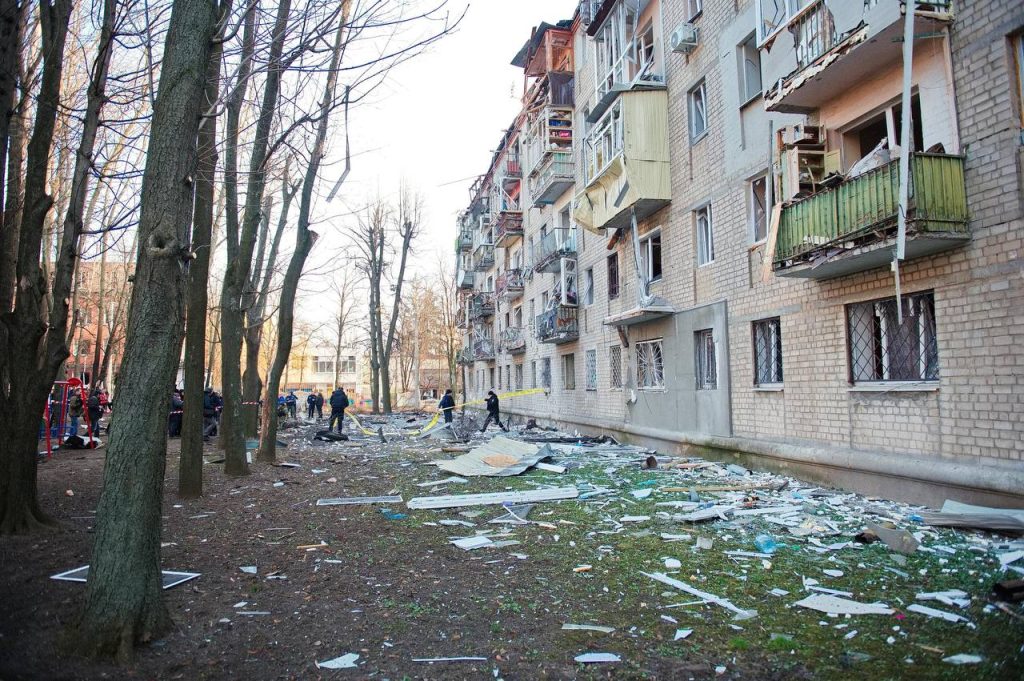On March 27, Russian forces launched multiple attacks on Ukrainian cities, resulting in casualties and destruction. In Kharkiv, a residential neighborhood was targeted, leading to the death of one civilian and injuries to at least 19 others, including children. The attack involved the use of powerful aerial munitions, causing significant damage to several buildings and a medical facility. Similarly, in Mykolaiv, at least eight civilians were wounded after a ballistic missile strike. These incidents are part of a broader pattern of Russian aggression, with ongoing assaults on critical infrastructure and civilian areas in various parts of Ukraine.
President Volodymyr Zelensky visited Sumy Oblast on the same day to inspect fortifications near Sumy, as the region has been a target of increasing Russian attacks. The construction of defenses, including trenches and firing positions, aims to bolster Ukraine’s ability to resist further aggression. The escalation in attacks on Sumy Oblast has resulted in civilian casualties and widespread destruction, prompting authorities to intensify evacuation efforts in affected areas. Villages in the region now resemble the ruins of previously targeted locations, highlighting the devastating impact of Russia’s aerial bombardments on civilian lives.
The Ukrainian parliament’s National Security and Defense Committee rejected a proposed amendment that would allow demobilization after 36 months of service without the approval of the Supreme Commander-in-Chief. This decision comes as Ukraine seeks to update its legal framework around conscription to enhance mobilization efforts in 2024. The parliament’s consideration of a new draft of the mobilization law has been marked by contentious debates and numerous proposed amendments. While the idea of demobilization after 36 months of service is supported, it will require the president’s approval, indicating ongoing challenges in streamlining the mobilization process.
Poland announced an increase in its commitment to the Czech-led initiative to purchase artillery shells for Ukraine, aiming to support the country’s defense against Russian aggression. This decision comes amidst escalating attacks by Russia, including missile and drone strikes that have caused widespread devastation. Poland’s support for Ukraine extends beyond military aid, as the country has also been a vocal advocate for international assistance to help Ukraine resist Russian aggression. The ongoing conflict has underscored the urgent need for coordinated efforts to provide essential support to Ukraine as it continues to defend its sovereignty and protect its citizens.
A UK general admitted that the military “couldn’t fight Russia for more than a couple of months,” highlighting concerns about the country’s preparedness for armed conflict. The admission reflects broader discussions in Ukraine and its allies about the challenges of facing Russian aggression and the need for strengthened defense capabilities. As the war in Ukraine enters its third year, the focus on mobilization and military readiness remains a critical issue for ensuring the country’s ability to withstand ongoing attacks. The international community’s response to the conflict, including diplomatic support and military assistance, will play a crucial role in determining the outcome of the conflict and supporting Ukraine in its defense against Russian forces.


